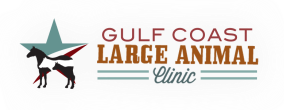Your trusted large animal clinic since 1983
- Lameness exam
- Reproductive ultrasound
- Gas anesthesia during surgery
- Digital Radiographs
- In-House Coggins Lab: Receive a STAT Coggins within 4 hours
- In-House lab work such as CBC, Thyroid, comprehensive wellness panel, SAA and packed cell volume
- Dental work using pneumatic power tools (a horse has 36 teeth that should be examined annually)
- Eleven horse stalls; two with IV Fluid setup
- Onsite Artificial Insemination and ½ acre of partially shaded AI lot for heat detection and a covered barn with twice daily hay for cattle
- Frozen semen storage available at $40 per year for the first rack, plus $10 per year for each additional rack. Each rack holds one bull, up to 10 straws of semen.
- Onsite hydraulic squeeze chute for cattle and wild horses
EQUINE
Your equine vaccination schedule should include the following:
- Flu Rhino twice per year
- VEWT twice per year
- Rabies once per year
- West Nile once per year
- Coggins once per year or when buying / selling
- Pregnant mares should receive Pneumabort at 5, 7 and 9 months as well as VEWT and Flu/Rhino 30 days prior to foaling
Foals: Vaccinations should be staggered over time at the discretion of the veterinarian
and/or owner.
- VEWT and Flu Rhino vaccine are given at 4 months followed by a booster in 4 weeks.
- Strangles and West Nile vaccine are given at 4 months followed by a booster in 4 weeks.
- Rabies vaccine is given at 4 months of age.
- It is not recommended for horses to be vaccinated with more than 3 vaccines at a time.
EQUINE WORMING
We recommend horses be dewormed every 6-8 weeks.
- Horses on Strongid C 2X should be dewormed twice yearly. Ivermectin is recommended or the ivermectin / praziquantel combo.
- Foals are dewormed at a dose double their weight with Panacur at 7 days and 3 weeks of age. Deworm every 6 weeks thereafter. Mares should be dewormed within first week after foaling.
COLIC
Colic is any kind of stomachache, such as gas, diarrhea, constipation and twisted intestines.
(Fact: Horses have over 100 feet of intestine.)
Colic is the #1 cause of death in horses.
BOVINE
Your vaccination schedule for 4-month-old calves should include the following:
- Black Leg (8-Way Clostridial)
- Bovine Respiratory Syncytial Viral (BRSV)
- Brucellosis between 4 and 12 months (heifers only)
- Worming
Your vaccination schedule for cattle 6 months and older should include:
- Black Leg (8-Way Clostridial) once yearly
- Lepto/Vibrio once yearly
- Respiratory once yearly
- Worming 2-3 times yearly
After 3 weeks of age, nearly one-third of beef cattle deaths are due to respiratory disease. We suggest vaccinating cows pre-breeding and pre-calving as compared to only pre-calving.
Maintain adult vaccination schedules after the initial series of vaccinations are complete. This applies to any animal.
